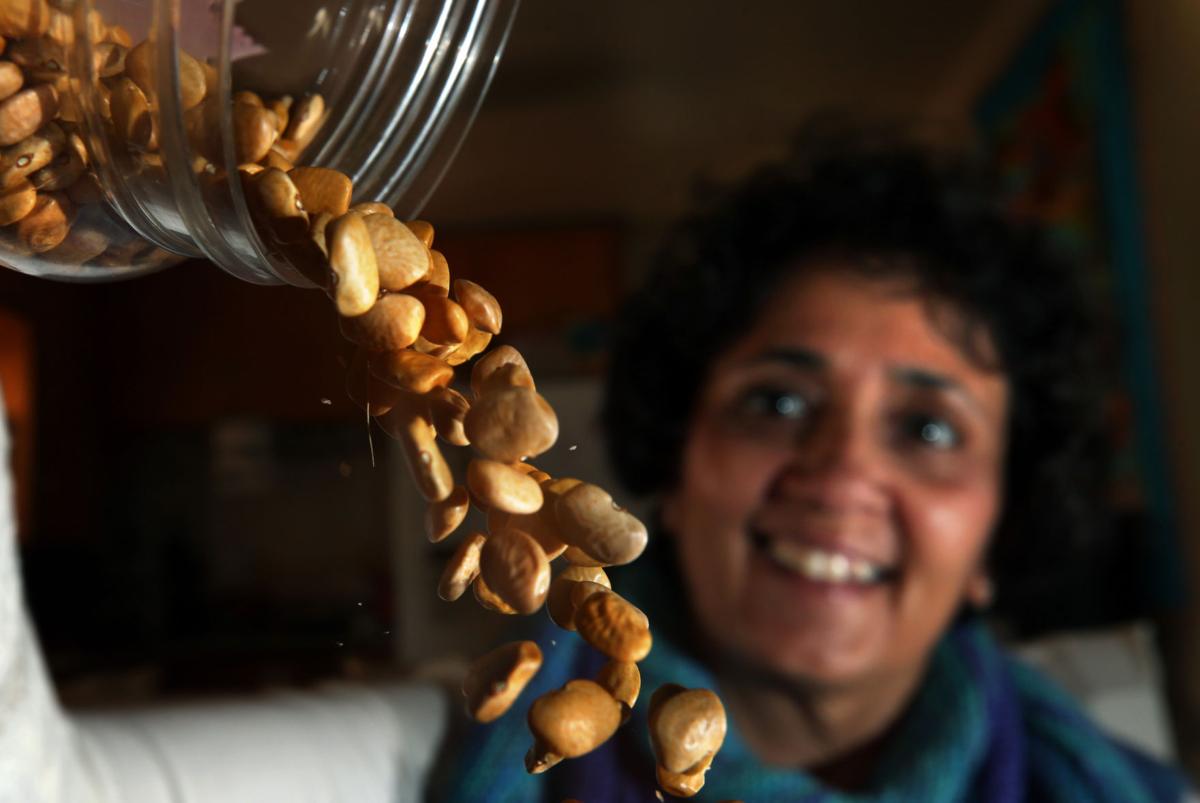For five years, the Pima County Public Library has been working to support gardeners by offering seeds.
The seed library appears to have taken root. And the library will celebrate that next week.
Terry Leary recently grew luffa for the first time, using seeds in the library collection. “I got the biggest kick out of telling people that I am growing sponge in the Tucson desert,” the experienced gardener says in an email.
Angie Gorkoff likes the connections made by the seed library, where some stock is replenished by gardeners who donate seeds from plants they grew from library seeds.
“I enjoy knowing that the seeds I’m planting have a personal story behind them of someone who has successfully grown and cared for them,” says Gorkoff by email, “and who now wants to generously share their success with others.”
Armed with a $5,000 grant from the Arizona State Library, the county library started the seed library in 2012 as a way for folks to “borrow” seeds. They would grow the plants, collect seeds from those plants and “return” them to the library for others to “borrow.” Users can get seeds at eight branches or order them through the library’s website.
Making the seeds available provided a “talking point” for gardening, says librarian Justine Hernandez.
To support the collection, the library has hosted gardening workshops at various branches, provides a container community garden at the Joel D. Valdez Main Library and maintains a seed blog on its website.
Gardeners launched a Seed Library Book Club, which has morphed into a Seeds for Thought Book Club that meets to discuss issues around food systems, sustainability and social justice.
In a One Seed campaign last year, the library encouraged gardeners to focus on one plant, the tepary bean. Some 800 packets were borrowed, although the stock wasn’t replenished by returns.
Hernandez says that’s OK, but it’s time to step it up.
“In the first five years the emphasis has been on becoming gardeners, how do we become a community of gardeners,” she says.
“It’s a beginning. We now want to educate people more about seed saving and how to collect seeds,” she says.
People have used the library seed collection to try gardening for the first time and to let gardeners experiment with new plants.
That ability to experiment is what attracted Gina Macaluso, who grows easy plants such as tomatoes, cucumbers, kale, Swiss chard and beets from library seeds.
Last year she tried tepary beans. “I had never grown dried beans,” Macaluso says. “I’m just so surprised that they worked out.”
She harvested four cups of beans. She liked making chili with them.
She returned about half a cup of seeds to the library. “That was the first time I was able to return seeds,” she says.
Some plants don’t produce seeds until they are at a stage when they are inedible. That was a sacrifice Macaluso didn’t want to make. “I want to eat them,” she says with a laugh.
Gorkoff has a different problem with returning seeds from her lettuce, bok choy, pea, carrot, onion, squash, melon and other plants.
In order that seeds grow plants that are true to their breeds, gardeners have to carefully grow them in separate areas to avoid cross-pollination of varieties. The library otherwise could not guarantee that a seed would actually grow into the plant one expects.
“My style of gardening is just too casual and whimsical to adhere to those rules,” Gorkoff says.
Leary has returned about 100 luffa seeds. Her donation is among the estimated 30 to 35 percent of borrowed packets that are returned to circulation, Hernandez says.
Actually, the librarian guesses there is about a 50 percent donation rate, but many of those seeds aren’t usable for the collection. They include seeds from store-bought fruit and those that cannot be identified. They go into supplies for making seed balls as craft activities.
One of the goals moving forward is to increase that donation rate, says Hernandez. “We really want to focus on a robust, healthy seed stock,” she says.
The library is creating its own stock by turning its main library’s community garden into a seed garden where plants are grown specifically to collect seeds.
Other plans for the seed library include making collections available at two more library branches and holding another One Seed campaign.
The book club and the workshops will continue.
Among the upcoming free talks that the Pima County master gardeners will present at library branches are ones on seed-saving on Feb. 11, 10-11:30 a.m., at the Murphy-Wilmont Library, and Feb. 17, 1:30-3 p.m., at the Oro Valley Library.





